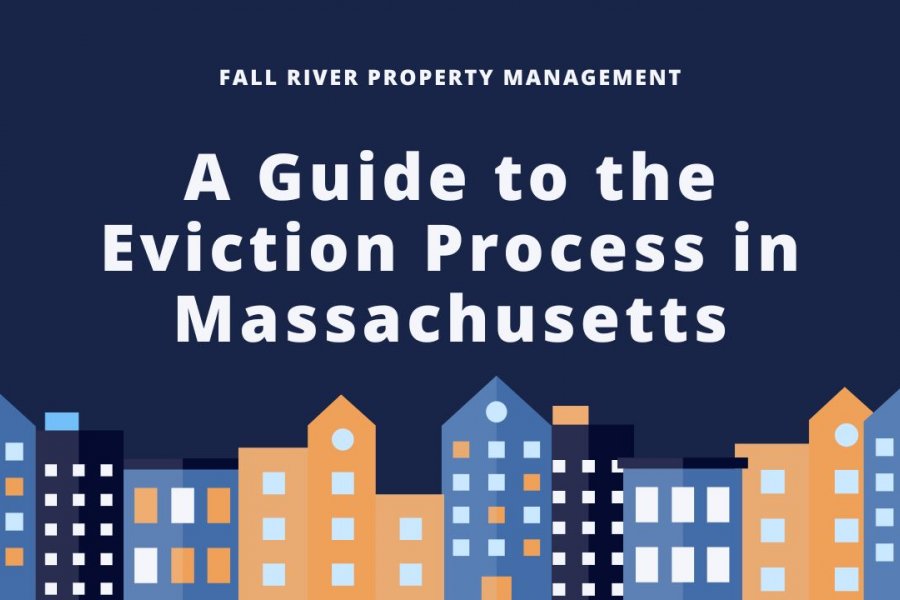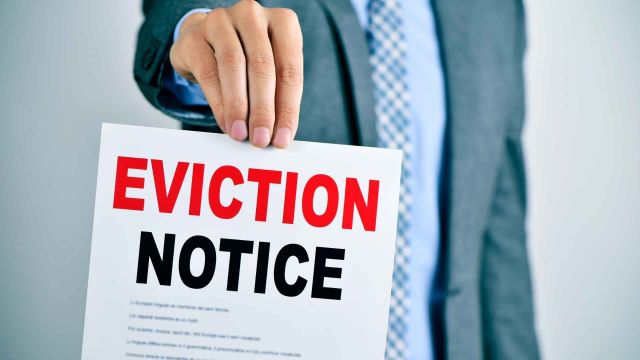
As a landlord in Massachusetts, dealing with a difficult resident can be incredibly frustrating. They may cause negligent damage, refuse to leave after their lease is up, or even refuse to pay their rent.
Luckily for you, according to Massachusetts rental laws, you may be able to evict such a tenant from your rental unit. The Massachusetts eviction process is fairly straightforward and will only take a few months to complete.
If you’re looking to remove a renter from your Massachusetts property or are simply looking to familiarize yourself with the Massachusetts eviction laws and process, here is everything you need to know.
The Massachusetts Eviction Process
The following is the exact process a landlord must follow when looking to remove a resident from their Massachusetts rental:
- Serve a notice to the tenant.
- File an eviction lawsuit against the renter in the appropriate justice court if the notice doesn’t resolve the matter.
- Attend the court hearing and wait for the court ruling.
- Take back possession of the residence if the ruling is in your favor.
Typically, landlords can expect the Massachusetts eviction process timeline to take anywhere between one to four months. The process can also take much longer under certain circumstances, such as if the renter appeals the ruling or contests their eviction.
Notice for Lease Termination with Legal Cause
In Massachusetts, it’s illegal for a landlord to evict a tenant without just cause. Legal causes for evictions include not paying rent, lease violations, and nonrenewal of a lease agreement.

A landlord must serve the renter with a notice. The following are types of eviction notices a landlord must use to break a lease:
- 14-Day Notice to Quit: A landlord must serve this written notice before evicting a tenant for failing to pay rent. The notice will give the tenant two options: to pay what they owe or leave within 14 days. If the notice expires before they pay rent, you must continue with the eviction.
- 7-Day Notice to Quit: You must issue this notice to quit to start the process to evict a tenant who violates a lease or rental agreement or engages in illegal activity on the premises. If the tenant doesn’t vacate within 7 days, you can move forward with the process.
- 30-Day Notice to Quit: This type of notice to quit applies to an eviction case where tenants are on a month-to-month lease or have no lease whatsoever. The notice gives the tenant 30 calendar days to move out.
Serving a Tenant with a Notice
A written notice specifies the reason for eviction and how much time the resident has to remedy the lease violation or move out.
Unlike some other states, Massachusetts doesn’t specify how a landlord must serve renters with the proper notice. That being said, the following are the best ways for landlords to serve a tenant:
- Delivering it in person.
- Sending it by certified, registered, or regular mail.
- Leaving a copy of it at a conspicuous area on the premises.

- Leaving a copy with someone else besides the tenant.
Tenant Eviction Defenses in Massachusetts
If the tenant doesn’t honor the notice, the landlord can move to a Massachusetts Housing Court. Next, a process server, usually the sheriff or law enforcement officer, will need to serve the summons and complaint to the tenant.
The tenant may then choose to file a written answer. A written answer is basically a defense as to why they think they shouldn’t be evicted from the residence.
Common tenant eviction defenses in Massachusetts include the following:
- It was a retaliatory eviction.
- It was discriminatory. Ensure you read all about the Massachusetts Fair Housing laws to prevent this.
- The landlord tried to remove the tenant by removing their belongings from the unit.
- The landlord tried to remove the tenant by shutting down previously available utilities.
- The notice contained a substantial error, such as failing to mention the reason for the removal.
- The landlord didn’t give the tenant an opportunity to remedy the curable violation.
- The tenant cured the violation, such as paying the due rent within the notice period.
- The reason for the removal is exaggerated.
Attending the Hearing
A tenant in Massachusetts doesn’t have to file a written answer as a prerequisite to attend the court hearing. But if they choose to, then they must submit the paperwork within 7 days of receiving the complaint.
If the tenant fails to attend the court date, there will most likely be a default judgment. If, however, the tenant appears in court and the landlord fails to appear in court, the hearing will be postponed for 7 days.

If the court rules in your favor, the court will issue you with a writ of execution and the eviction will proceed.
Writ of Execution
This is the tenant’s final notice to leave. The writ of execution gives the tenant an opportunity to leave on their own before being forcefully evicted by the sheriff.
In Massachusetts, after a successful judgment, landlords need to wait at least 10 days before a writ is issued. After it’s been issued, tenants have a maximum of 48 hours to remove their belongings from the rental.
To start an eviction, having a court order is key. The landlord cannot engage in illegal eviction tactics, such as “self-help” evictions, retaliatory evictions, or discriminatory evictions.
Bottom Line
For expert help in evicting a tenant or managing your rental, Fall River Property Management can help! We are a quality management company that manages rental properties in Fall River and New Bedford.
Some of our services include rent collection, rental maintenance, leasing, financial reporting, and legal services. Our goal is to help property owners achieve peace of mind and maximize the return on investment.
If you own an investment in any of these areas and need expert help, get in touch with us today to learn more!
Disclaimer: This blog should not be used as a substitute for legal advice from a licensed attorney in your state. Laws change, and this post might not be updated at the time of your reading. Please contact us for any questions you have in regards to this content or any other aspect of your property management needs.